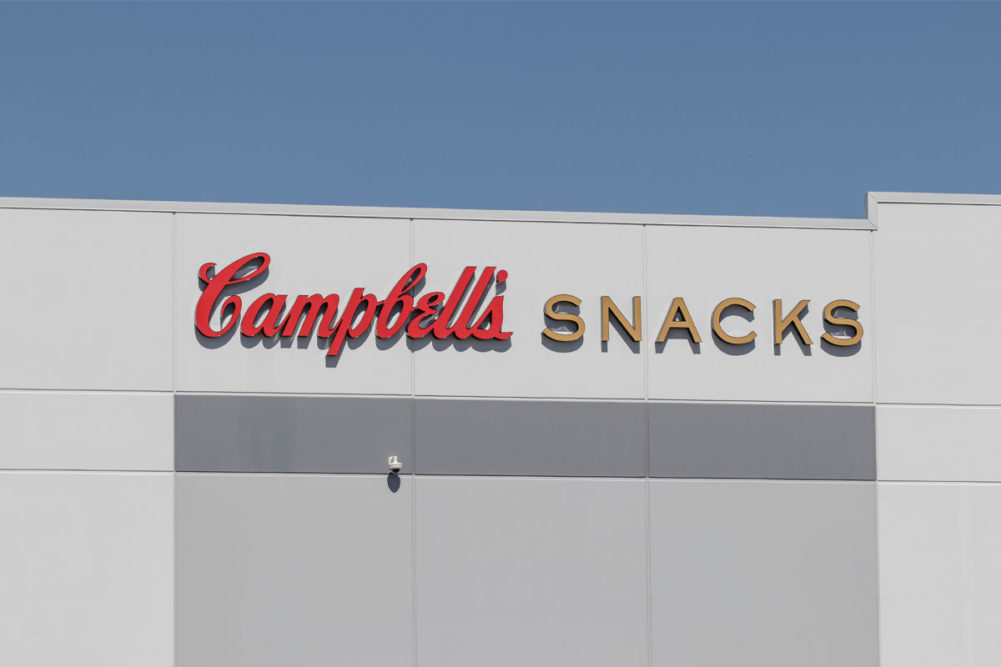CAMDEN, NJ. — Transforming its direct-store delivery (DSD) program will bring the Campbell Soup Co.’s Snacks business closer to a “single snacks network,” said Mark A. Clouse, president and chief executive officer of Campbell Soup Co.
“I wanted to provide an update on our route strategy, which adds another important element for our plans to create, essentially, a single snacks network,” he said in a March 6 earnings call to discuss second-quarter results. “As we discussed during our first-quarter earnings call, we’re already executing the integration of our warehouse and depot network as well as upgrading technology across our network and the independent distributor network, with the goal of improving efficiency and effectiveness. This leaves independent distributor DSD routes as our next optimization area.”
A majority of the routes in the Snacks business already operate efficiently as the scale of business supports separate routes for Pepperidge Farm and Snyder’s-Lance products, he said.
“We expect no change in these routes,” Clouse said. “However, for some of our routes, we do not have enough scale to help maximize the economics or efficiency of these routes if they remain separated. To solve this, we’ve been testing the combination of the entire snacks’ portfolio on one truck. In these limited under-scaled markets, we purchase certain Pepperidge Farm snacks and Snyder’s-Lance routes, combine them and sell the combined routes back to independent distributors. We’re seeing that beyond the efficiency of this, independent distributors have an opportunity to provide better execution and improved service for our customers.”
Campbell Soup Co. expects to convert about one-fifth of the Snacks business routes nationwide into combination routes over the next several years, Clouse said. The routes will vary in location and include urban, rural and suburban areas. Campbell Soup Co. has no plans to combine the Pepperidge Farm bakery routes since the company is focused on gaining scale and growing across its Snacks’ portfolio, Clouse said.
“When you look at our business and you see the complexity of multiple DSD routes on snacking and you see the disparity geographically in scale, it does really beg the question of is there no way to put these businesses together?” he said.
Within the Snacks business, sales of $1.07 billion in the quarter ended Jan. 28 were flat compared to $1.08 billion in the previous year’s second quarter. Excluding the impact from the divestiture of the Emerald nuts business, organic net sales rose 1%, driven by increases in cookies and crackers, primarily Goldfish crackers and Lance sandwich crackers, and in salty snacks. Within salty snacks, sales increases in Kettle Brand and Cape Cod potato chips more than offset declines in Pop Secret popcorn and Late July snacks.
“Our latest innovation, Goldfish Crisps, are off to an amazing start,” Clouse said of the potato-based snacks. “Launched in January, we realized strong velocities greater than other recent category launches, and it has exceeded our initial expectations, as we begin to move Goldfish into adjacent occasions. The news on Goldfish gets even more exciting. Goldfish has now officially crossed $1 billion in net sales, making it the second $1 billion brand in our portfolio, alongside Campbell’s iconic red-and -white soup.”
Companywide, Camden-based Campbell Soup had net earnings of $203 million, or 68¢ per share on the common stock, which marked a 12% decrease from $232 million, or 78¢ per share, in the previous year’s second quarter. Net sales fell 1% to $2.46 billion from $2.49 billion. Organic sales also were down 1%. Volume/mix decreased 2%, which offset a net price realization benefit of 1%.
Within the company’s Meals & Beverages business, second-quarter sales of $1.38 billion were down 2% from $1.41 billion. Gains in Canada and foodservice partially offset declines in US retail products, primarily in US soup, beverages and Pace Mexican sauces.





